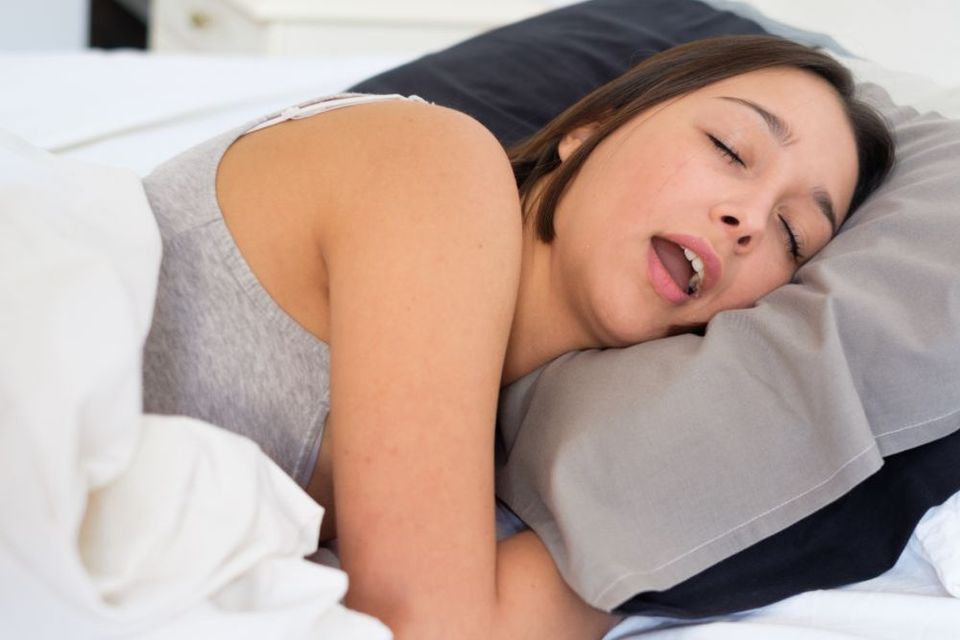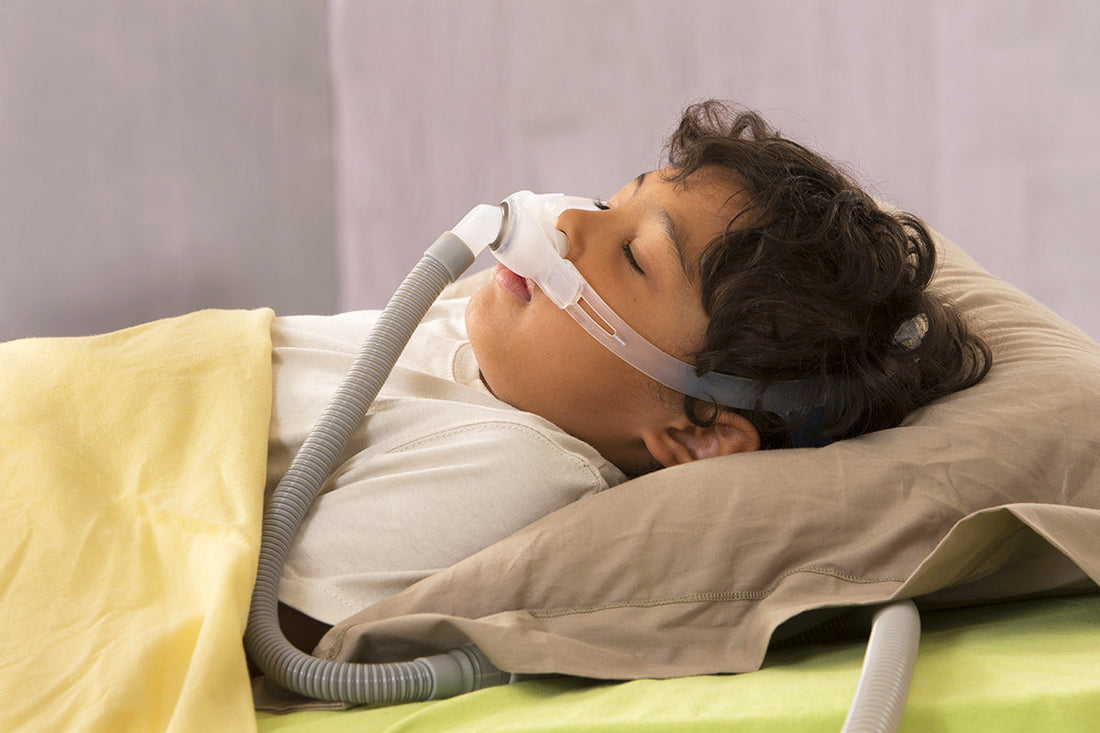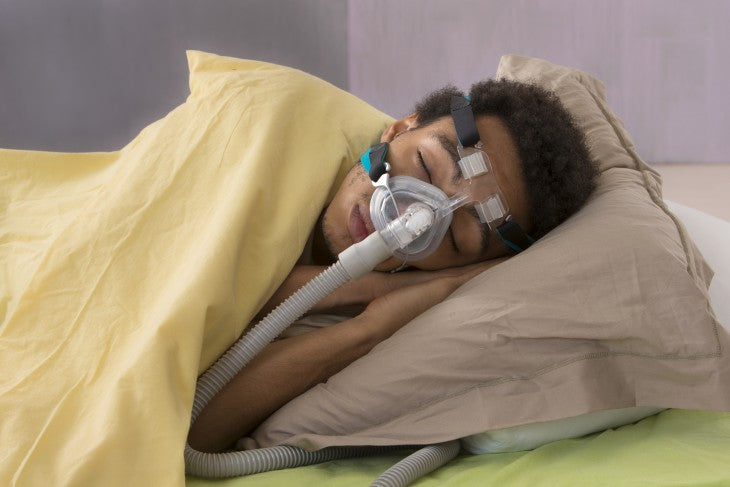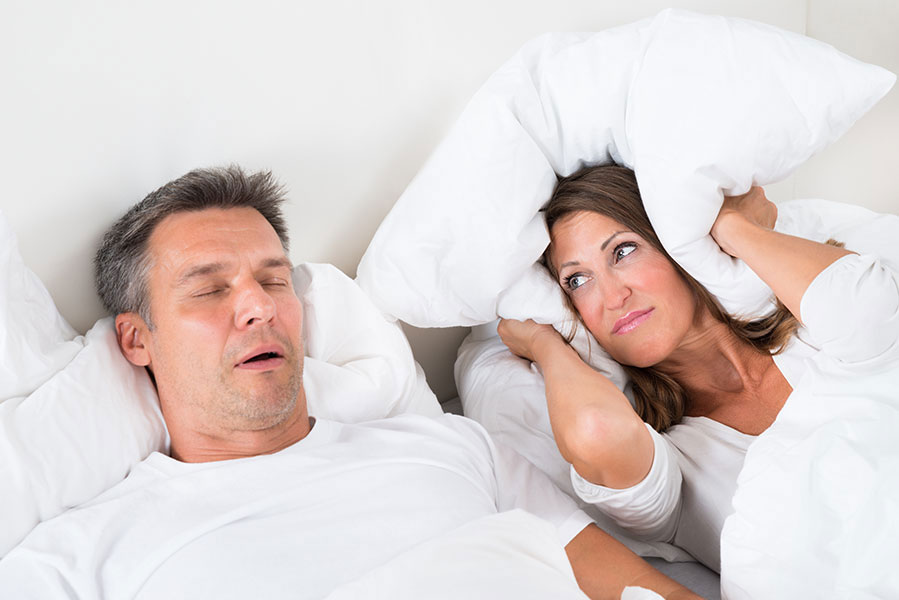News
Sleep Apnea in Children
Think sleep apnea doesn’t affect children? Think again. While it is not as common, children can occasionally be affected by a sleep disorder called pediatric obstructive sleep apnea. OSA in children may look a little different in children than it does for adults, however, it is important to remember that children require a good night’s sleep to help aid their growing bodies. Because of this, seeking medical help is very important in order to treat sleep apnea symptoms. Causes and Risk Factors Some of the most common risk factors for sleep apnea in children include enlarged tonsils and adenoids, obesity, and underlying health conditions such as Down Syndrome, Cerebral Palsy, and craniofacial abnormalities, just to name a few. Some children may also develop OSA, simply based on family history of the condition. Symptoms to Watch Much like adults, children who have OSA may experience symptoms such as snoring, restless sleep, pauses in breathing, and coughing or choking. Occasionally children may have other symptoms such as night sweats, bed-wetting, or sleep terrors. Untreated OSA in children can also have an effect on how a child functions during the daytime, including learning and/or behavioral problems, hyperactivity, poor weight gain as well as poor performance in school, and difficulty paying attention. Treatment OSA treatment in children will depend on many factors. Your doctor may refer your child to a sleep specialist for further examination of their symptoms. Managing weight in children with obesity issues will often help to treat mild cases of sleep apnea in children. Children with enlarged tonsils and/or adenoids may require surgery in order to treat the sleep apnea. Some cases may even require the use of a CPAP machine to treat the sleep apnea, whether temporary or permanent, though this is not as common for children as it is in adults. Early diagnosis and treatment are key to preventing complications that could affect the child’s growth and development. If your child consistently wakes up feeling tired or is experiencing problems functioning during the daytime, then it’s time to call your doctor. Left untreated, OSA in children can lead to some serious health problems that could cause issues with their growth and development.
about Sleep Apnea in ChildrenFour Myths about Sleep Apnea
wp:paragraph Sleep apnea, as you may know, is a condition that causes a pause in your breathing for approximately 10-30 seconds while you sleep and can happen up to several times in a night. There are many myths and misinformation around sleep apnea given how complex the condition can be. Here are four myths you may or may not have heard about sleep apnea. /wp:paragraph wp:paragraph 1. Only older adults get sleep apnea. /wp:paragraph wp:paragraph This is not true. While most cases of sleep apnea occur in middle-aged adults, you can develop sleep apnea at any age. It can even occur in children! That said, the risk of developing sleep apnea does increase as you get older, however the condition is not at all based solely on age. /wp:paragraph wp:paragraph 2. Sleep apnea is the same thing as snoring. /wp:paragraph wp:paragraph Not necessarily. Snoring is very common in adults, however it is actually different from sleep apnea. Snoring is certainly a common symptom that leads to a sleep apnea diagnosis, however you can still snore at night and not have sleep apnea. /wp:paragraph wp:paragraph 3. Only people who are overweight can develop sleep apnea /wp:paragraph wp:paragraph While the risk of developing sleep apnea does increase if you are overweight, this is not necessarily true. Loosing weight and adapting a healthier lifestyle can certainly lessen the severity of your sleep apnea symptoms, but this is not a cure. It is important to speak with your doctor if you think you have sleep apnea and they can conduct the proper testing and discuss treatment options to help you sleep better. /wp:paragraph wp:paragraph 4. Sleep apnea will go away on it’s own /wp:paragraph wp:paragraph False! Sleep apnea is a serious condition that needs medical attention. If left untreated, this can cause a number of health issues including stroke, diabetes, heart disease and mental illnesses such as depression. Depending on the severity of your sleep apnea, your doctor may recommend some lifestyle changes if you have a mild case. More severe cases of sleep apnea may require you to wear a CPAP mask at night in order to treat it (more information about CPAP masks and accessories can be found at papsmart.com). /wp:paragraph
about Four Myths about Sleep ApneaI think I have sleep apnea, now what?
wp:paragraph For many people, a sleep apnea diagnosis, or even the possibility of having sleep apnea without a proper diagnosis can feel overwhelming and scary. It is important to know that this is a condition that is very treatable and can put you on track to getting a good night’s sleep again. Not treating a possible sleep apnea diagnosis can lead to many serious health problems. /wp:paragraph wp:paragraph When to see a doctor; /wp:paragraph wp:paragraph Some of the symptoms, such as loud snoring, insomnia, and waking up with a dry mouth or headache in the morning can be an occasional occurrence, however if this is something that is happening very consistently and affects how you function in the daytime, then it is time to make an appointment with your doctor. Also, if you are having episodes in which you stop breathing during sleep, this can be very serious and needs to be addressed by a medical professional. Too often, sleep apnea patients have no idea this is happening and it is another person (such as your spouse) that is observing this. /wp:paragraph wp:paragraph How to treat sleep apnea; /wp:paragraph wp:paragraph Most mild cases of sleep apnea can be treated with lifestyle changes such as loosing weight or quitting smoking. Everyday allergies can also cause mild forms of sleep apnea, in which an allergy treatment will address it. /wp:paragraph wp:paragraph For those with moderate to severe sleep apnea, your doctor may recommend a therapy called Continuous Positive Airway Pressure (CPAP). This is a mask that is worn overnight and is designed to deliver air pressure that will keep the passages of your airway open throughout the night, and will address any breathing episodes you may have while sleeping. The CPAP machine may seem overwhelming at first, but this has proven to be an extremely effective option for those who suffer from more severe forms of sleep apnea. /wp:paragraph wp:paragraph There are lots of different types of masks, machines and accessories out there, and you will need to find the one that is the best fit for you. Your doctor will have the best advice on this, or will be able to recommend you to a specialist who can answer any questions you have about the CPAP machine and how it works. There are also tons of options available on CPAP Machines - PAPSmart Canada, including masks, machines and other supplies and accessories. /wp:paragraph
about I think I have sleep apnea, now what?


